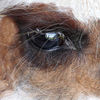New camera blues.
Feb 21, 2015 12:31:51 #
Ranjan
Loc: Currently Cyber-Nation!
Cdouthitt wrote:
I'd recommend starting with aperture priority. While I know how to shoot with all the mode, but I'd say 90% of my shots are shot in aperture mode.
A recent online tutorial-workshop made a good point. The instructor mentioned that simply stated, there would always be fewer f-stops for any given lens than selectable speeds on the shutter dial. So, might be faster to go with the aperture-priority route. Select the aperture and the fitting shutter speed will fall in place automatically and then one can fiddle with compensations. Fewer steps, as opposed to selecting the shutter speed first and then finding that one is out of the available range of lens apertures!
Feb 21, 2015 13:01:22 #
GDRoth wrote:
Scott Kelby has a group of books that do a good job of introducing someone to the finer points of digital photography.
http://www.amazon.com/Scott-Kelbys-Digital-Photography-Boxed/dp/0133988066/ref=sr_1_1?ie=UTF8&qid=1424447789&sr=8-1&keywords=scott+kelby
You can probably find them in your local library.
http://www.amazon.com/Scott-Kelbys-Digital-Photography-Boxed/dp/0133988066/ref=sr_1_1?ie=UTF8&qid=1424447789&sr=8-1&keywords=scott+kelby
You can probably find them in your local library.
Also, some of Scott's books come optimized for different versions of Photoshop and Lightroom.
Feb 21, 2015 13:45:11 #
Enjoy your new camera! There are some very good intro digital photography classes online at CreativeLive. When they're live they are free. And you can buy recorded classes to view or pause at your convenience. I suggest you put tape over your Auto mode (when using a DSLR) and forget it's there. If you need 'training wheels' or quasi auto assist, use the Program Mode and Aperture Priority Mode primarily until you get more intuitive about settings. Shutter Priority for action shots. With Auto you have no creative ability at all other than where you are pointing the camera (eg, no step up from pont & shoot). With Program Mode you have some leeway to adjust a few settings that affect exposure and the kind of mood or center of attention you desire. Good luck. Have fun!
Feb 21, 2015 14:19:47 #
ozmerelda
Loc: Osprey, FL
latebloomer wrote:
I must recommend this book as essential for someone in photography. Don't borrow it. BUY IT and KEEP IT. You will be glad you did. I left photography 27 years ago and even taught a class in it at the high school level before other interest and career choices took me away from photography. Even with this background I learned some things in Understanding Exposure by Bryan Peterson.
:) :) :) :) :) :) :) :)
Feb 21, 2015 14:39:16 #
This is a common problem with new cameras and I have problems with memorizing all the features in my own new Olympus XZ-2. It has many features I simply don't use, but may use occasionally if I could only remember how to use them. When learning basic 35mm photography, I learned how to focus, compose and shoot photos in that order. Having multiple focusing sensors was not only was not necessary, it would have been a major distraction (just as it is now).
On the plus side, I paid a lot for certain accessories that are now built in to my camera. For example, a focusing screen divided into thirds or quarters, which are a great help for both scenery and architectural photography. But those options are buried under a mountain of useless settings and dialing features. I even have a mode for photographing pets! Who needs a mode for photographing a cat?? 🐱
I'm still struggling to learn the features on my camera, and I spend a great deal of time playing with it when I'm not under the pressure of actually having to take photos. I recommend getting an extra battery or two, then playing with your camera when you have the time. That's my only recommendation for learning these cameras. 📷
On the plus side, I paid a lot for certain accessories that are now built in to my camera. For example, a focusing screen divided into thirds or quarters, which are a great help for both scenery and architectural photography. But those options are buried under a mountain of useless settings and dialing features. I even have a mode for photographing pets! Who needs a mode for photographing a cat?? 🐱
I'm still struggling to learn the features on my camera, and I spend a great deal of time playing with it when I'm not under the pressure of actually having to take photos. I recommend getting an extra battery or two, then playing with your camera when you have the time. That's my only recommendation for learning these cameras. 📷
Feb 21, 2015 14:50:53 #
amfoto1
Loc: San Jose, Calif. USA
Lot's of good suggestions here!
To summarize...
1. Read the camera manual. If a printed one wasn't supplied with your camera, you can download a copy from the Canon website.
2. Get a copy of Brian Peterson's "Understanding Exposure", read it, study it, learn it. This book is general in nature, applies to using practically all SLR cameras and even other types of cameras. Might be the best $18 you ever spend on your photography.
3. Get one of the guide books specifically for your camera model. There are a number of different ones (David Busch's was one I saw recommended) and these guides sort of pick up where the user manual leaves off.
4. Take a class.
5. Join a photography club and hang around with other Canon Rebel users.
6. Look for online tutorials if you feel those would be helpful to you.
I also recommend starting to learn about post-processing.... get a simpler software such as Adobe Elements (current version allows you to use it in beginner mode, more experienced mode or expert mode). Get a "how to" book or two about the software you choose.
Further, get a book such as "The DAM Book: Digital Asset Management for Photographers", to guide you with organize your workflow and secure storage of your digital images. (A lot different from the days of film.... you now are your own 1-hour Photo Processor... and that shoe box of negatives has been replaced with a hard drive.) If you establish good practices early on it is much easier than going back and re-organizing things later, when you have many thousands of images to deal with.
When you come across a specific problem or issue that's holding you up, don't hesitate to ask on forums like this one. There are no dumb questions (and a relatively small number of obnoxious trolls). Give details of your problem as best you can and if at all possible post sample images when asking for help. These can make for much better answers.
And practice a lot... Get out and shoot, make mistakes, learn from them, and enjoy your successes which will become more and more frequent over time.... There's no substitute for hands-on learning!
To summarize...
1. Read the camera manual. If a printed one wasn't supplied with your camera, you can download a copy from the Canon website.
2. Get a copy of Brian Peterson's "Understanding Exposure", read it, study it, learn it. This book is general in nature, applies to using practically all SLR cameras and even other types of cameras. Might be the best $18 you ever spend on your photography.
3. Get one of the guide books specifically for your camera model. There are a number of different ones (David Busch's was one I saw recommended) and these guides sort of pick up where the user manual leaves off.
4. Take a class.
5. Join a photography club and hang around with other Canon Rebel users.
6. Look for online tutorials if you feel those would be helpful to you.
I also recommend starting to learn about post-processing.... get a simpler software such as Adobe Elements (current version allows you to use it in beginner mode, more experienced mode or expert mode). Get a "how to" book or two about the software you choose.
Further, get a book such as "The DAM Book: Digital Asset Management for Photographers", to guide you with organize your workflow and secure storage of your digital images. (A lot different from the days of film.... you now are your own 1-hour Photo Processor... and that shoe box of negatives has been replaced with a hard drive.) If you establish good practices early on it is much easier than going back and re-organizing things later, when you have many thousands of images to deal with.
When you come across a specific problem or issue that's holding you up, don't hesitate to ask on forums like this one. There are no dumb questions (and a relatively small number of obnoxious trolls). Give details of your problem as best you can and if at all possible post sample images when asking for help. These can make for much better answers.
And practice a lot... Get out and shoot, make mistakes, learn from them, and enjoy your successes which will become more and more frequent over time.... There's no substitute for hands-on learning!
Feb 21, 2015 14:58:17 #
Akron1950 wrote:
I just got a Canon EOS Rebel T3i. Stepped up from a point and shoot. Now, I know there's a big difference between the two. I just need some pointers if anyone is willing to give them. I mostly like to shoot landscapes and functions at the Metro Parks here in town. I have been shooting on auto, and some on TV, witch I keep forgetting how to set everything up from sunny days to evening shots. When I'm told how to I get it, but then I forget! Is there some help for me out there??
Quickly. go find a copy of David Busch's book on the T3i. Best <$20 you will spend on photography. He will hold you hand and walk you through the jungle of your new camera.
Feb 21, 2015 14:58:29 #
Alan, I think I'll add one last suggestion to your terrific summary... Back up your images in more than one way after you download them at the end of each shooting day. At least if you care about the photos you're shooting and want to keep them.
Some reliable onsite & offsite options:
- External hard drive located near your computer setup
- External hard drive in your safe deposit box
- Another internal drive
- "Cloud" storage services - like CrashPlan, Dropbox, etc.
I use 3 methods for all my digital photos. A mix of on and offsite.
Some reliable onsite & offsite options:
- External hard drive located near your computer setup
- External hard drive in your safe deposit box
- Another internal drive
- "Cloud" storage services - like CrashPlan, Dropbox, etc.
I use 3 methods for all my digital photos. A mix of on and offsite.
Feb 21, 2015 15:31:35 #
craggycrossers wrote:
Sounds like you need a course to help you learn the basics (and then more) at your own pace ....... this set of videos is highly instructional, easy to comprehend, deals with one topic at a time and allows you to go back and re-watch whenever and as frequently as you wish ....... and it won't cost you a penny ..... er, sorry, dime !
http://www.photographycourses.biz/videos
http://www.photographycourses.biz/videos
:thumbup: :thumbup: :thumbup: I can't stress strongly enough how good these videos are for beginners. These are how I learned to use my T3i. Their videos are divided by beginner, intermediate and advanced. There are things I had never heard of before getting a DSLR but are essential to understanding how your camera works. Your new T3i is an amazing gem of a camera for the price. Watch these videos and you will quickly figure it all out.
Walt
Feb 21, 2015 15:53:15 #
Local community college community education classes...look in their list of offerings for photography classes.
Best move I ever made what taking the NYIP (New York Institute of Photography) correspondence classes in the 60's.
They are still in business today, so they must have been doing something right for those 50 years. Thinking of doing them again.
Take their course on photography... not on digital camera's. That's if they separate the two?
Best move I ever made what taking the NYIP (New York Institute of Photography) correspondence classes in the 60's.
They are still in business today, so they must have been doing something right for those 50 years. Thinking of doing them again.
Take their course on photography... not on digital camera's. That's if they separate the two?
Feb 21, 2015 16:34:24 #
Cdouthitt wrote:
Understanding exposure, buy it, borrow it, or do what you need to, but read it.
http://www.amazon.com/Understanding-Exposure-3rd-Edition-Photographs/dp/0817439390
http://www.amazon.com/Understanding-Exposure-3rd-Edition-Photographs/dp/0817439390
This book will set your free!!!!
:thumbup: :thumbup: :thumbup: :thumbup:
Feb 21, 2015 16:40:07 #
Akron1950 wrote:
I just got a Canon EOS Rebel T3i. Stepped up from a point and shoot. Now, I know there's a big difference between the two. I just need some pointers if anyone is willing to give them. I mostly like to shoot landscapes and functions at the Metro Parks here in town. I have been shooting on auto, and some on TV, witch I keep forgetting how to set everything up from sunny days to evening shots. When I'm told how to I get it, but then I forget! Is there some help for me out there??
Akron1950, we have a professional outfit here in the UK called Experience Seminars, who are all ex-employees of Canon. They run wonderful seminars on all aspects of photography, and their walls are covered with die-for A3 photos - and almost every single one is taken with Jpegs (rather than RAW) and using the P setting. These people know all the Canon cameras inside out, and are very familiar with using manual/AV/TV etc and all the funny little settings that you find in the Menu. But because they know their cameras so well, they can use Jpeg and P so that what they want to achieve is done in-camera and does not need a lot of PS. So nothing wrong with what people would consider "amateur settings" if you know your camera and can get it right first time. Just get to know your camera!
Feb 21, 2015 16:54:59 #
photosarah wrote:
Akron1950, we have a professional outfit here in t... (show quote)
:thumbup:
The whole JPEG vs RAW argument has generated thousands upon thousands of hours of endless debate on UHH and just about every other photo enthusiast site. Suffice it to say, it will never be "won", just understood. Both file types have highly appropriate uses.
A3? Might want to translate for us across the pond.
Feb 21, 2015 17:10:02 #
burkphoto wrote:
:thumbup:
The whole JPEG vs RAW argument has generated thousands upon thousands of hours of endless debate on UHH and just about every other photo enthusiast site. Suffice it to say, it will never be "won", just understood. Both file types have highly appropriate uses.
A3? Might want to translate for us across the pond.
The whole JPEG vs RAW argument has generated thousands upon thousands of hours of endless debate on UHH and just about every other photo enthusiast site. Suffice it to say, it will never be "won", just understood. Both file types have highly appropriate uses.
A3? Might want to translate for us across the pond.
Hi, I quite agree with you, both have their good points. Just trying to assure someone that even the pros get wonderful results using what some would call "amateur settings": I wasn't trying to stir up an argument Jpeg versus RAW!
A3 is an English paper size for 16-1/2 x 11-3/4 inches (approx.) i.e. reasonably large photos. Sorry we don't speak the same language!! :lol: :lol:
Feb 21, 2015 18:16:47 #
Mac wrote:
Congratulations on your new camera.
I think you would find the book "Understanding Exposure" by Bryan Peterson a big help. Have fun and happy shooting.
I think you would find the book "Understanding Exposure" by Bryan Peterson a big help. Have fun and happy shooting.
+++++++++++++++++++++
YES!!
I use this book as my "standard" textbook for my students. It IS one of the best that has ever been written - and that includes Ansel Adams series of books on learning photography.
You can get USED copies of this from Amazon for 3 to 7 U.S.D. with shipping sometimes.
If you want to reply, then register here. Registration is free and your account is created instantly, so you can post right away.







